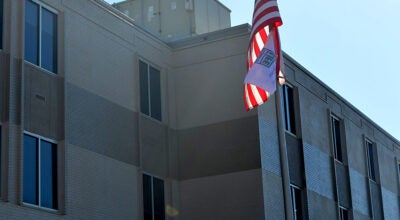Weekend prostate screenings have big turnout
Published 7:01 pm Monday, April 19, 2010
Eighty-seven men participated in the free prostate cancer screenings Saturday hosted by the Pike County Health Department and sponsored by the Urology Centers of Alabama and the Urology Health Foundation.
Sherry Wilson, director of heath and information Urology Centers of Alabama, said everyone involved was thrilled with the number of men who took advantage of the free screening opportunity.
“Considering that this was the first time in Troy and Pike County and with all of the A-Day game conflicts, we were more than pleased,” Wilson said. “We had participants from ages 40 and up. A good cross section of the population came for screening and that is an indication that these men realize the importance of early detection for prostate cancer.”
The tests results were back on Monday and Wilson said that 14 percent of those screened will need some follow-up.
“Fourteen percent is about what would normally be expected from a screening of this type,” She said. “Of course, the doctors will take a closer look at the test results before we notify the participants that they need to follow up on the screenings.”
The free prostate cancer screenings will be conducted again in Troy in about a year. However, those who missed Saturday’s screenings might want to take advantage of the free prostate cancer screenings that will be held on May 22 at the Butler County Health Department in Greenville.
Prostate cancer is the second leading killer, behind lung cancer, among men in the United States. Early detection and treatment are key factors in addressing prostate cancer.
“No one knows the exact cause of prostate cancer,” said Dr. Thomas Moody, president of the Urology Health Foundation. “Doctors can seldom explain why one man develops the disease and another does not. Age and race are the strongest risk factors for prostate cancer. One in six men will get prostate cancer sometime in their life.
“African American men are at special risk for the disease, with the highest rate of prostate cancer in the world. One in four African American men will get prostate cancer sometime in their life and are 2.5 times more likely to die from the disease. A man’s risk of prostate cancer is higher than average if his brother, father or uncle had the disease.”
There are no noticeable symptoms of prostate cancer while it is still in the early stages, and that is why screening is so critical, Moody said.
“Today, if a man is diagnosed with prostate cancer, there are new advances in medical technology that enable him to go on living an active and productive life,” he said.
The advances include robotic prostatectomy which offers patients a less invasive surgical alternative to removing the prostate gland; external radiation, which allows higher doses of radiation to target the prostate for a more effective treatment; cryosurgery which uses argon gas to freeze and destroy prostate cancer and hormonal therapy which is offered to patients with advanced prostate cancer. It eliminates male hormones from the body.
For more information about prostate cancer visit www.urologycentersalabama.




